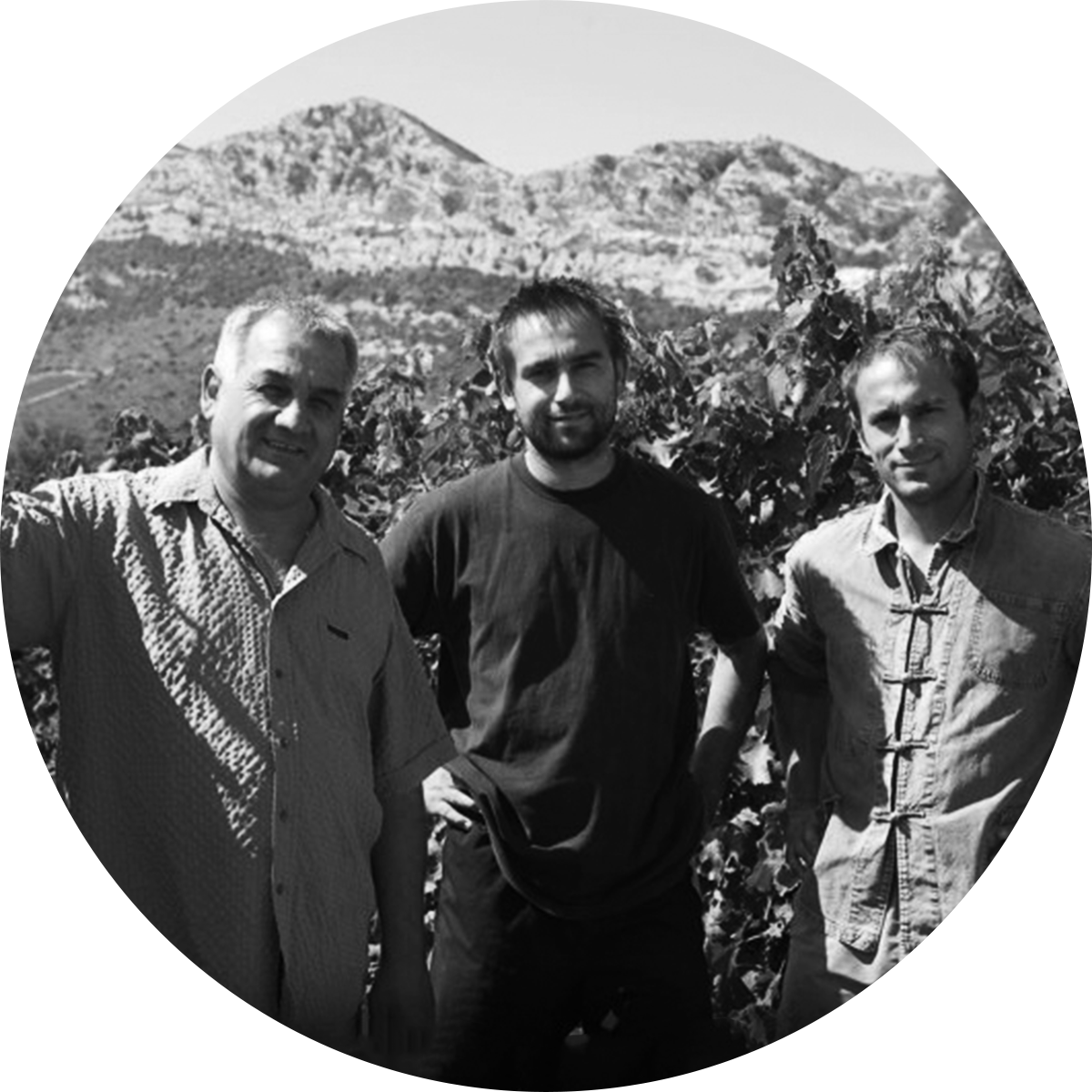DOMAINE ARENA
JEAN-BAPTISTE ARENA
Corsica, France
Antoine Arena, a child of Corsica, grew up in a family that earned a modest living, working the land on the island. Like most young Corsicans, he moved to the French mainland in search of a better life at an early age. Several years later, however, in the mid 1970s, the Corsican independence movement erupted and Antoine returned to his family farm as a result. From the first 3-ha he started with in the 80s, Antoine now runs a 14-ha vineyard in Patrimonio, a small coastal region in the south of the Cap Corse. Patrimonio is now also one of the most famous Corsican appellations, of which Antoine is probably the most renowned representative.Antoine has been and remains dedicated to working the vines organically to make the best use of his terroir. He and his wife were recently joined by their two sons Antoine-Marie and Jean-Baptiste, who share their father's dedication to making wine naturally.
BACKGROUND OF NATURAL WINE IN CORSICA
Corsica is an island territory of France situated in the Mediterranean Sea and known for its distinct viticultural heritage. Popular for its rugged terrain and diverse microclimates, Corsica produces wines with unique characteristics and terroir-driven flavours. The region is renowned for indigenous grape varieties such as Nielluccio (similar to Sangiovese), Sciaccarello, and Vermentino (known locally as Rolle), which thrive in the island's granite and schist soils. Corsican wines are gaining international recognition for their quality, reflecting the island's rich cultural and natural landscapes.
Organic, Biodynamic and Natural wine. What’s the difference?
To understand this concept and its various ramifications, it is necessary to keep something clear in mind: before the 20th century and the spreading of affordable synthetic fertilisers, all farming was organic. When the shift to the use of synthetics and pesticides happened, it became necessary to diversify traditional organic farming from the new modern farming.
ORGANIC WINE
Simply put, organic farming forbids the use of synthetic fertilisers, synthetic pesticides, herbicides, or genetically modified organisms. The basic requirements are generally specific and engage the farmers not to use any chemical fertilisers and other synthetic products in the vineyard. It does not prevent the vintner from using the conventional winemaking process after harvesting.
BIODYNAMIC WINE
Let’s take organic farming one step further: Biodynamic. The creator of this agricultural system is the Austrian philosopher Rudolf Steiner, who developed the principles of biodynamics in a series of lectures given in 1924 in Germany. Here lies the foundation of true organic wines, with a strict limit in the use of additives, stringent requirements and at the end obtaining a biodynamic certification.
NATURAL WINE
The previous definitions are usually, and rightfully, associated with it, because most natural wine is also organic and/or biodynamic. But not vice versa!
Natural wine is wine in its purest form, simply described as nothing added, nothing taken away, just grapes fermented. No manipulation whatsoever, minimal intervention both in the vineyards and in the winery. Healthy grapes, natural yeast and natural fermentation, with no filtration nor fining. Sounds easy, right? However, making natural wine is unforgiving and it requires a bigger amount of work than conventional wine. To this day, natural wine has no certification yet.





